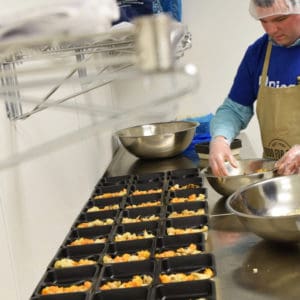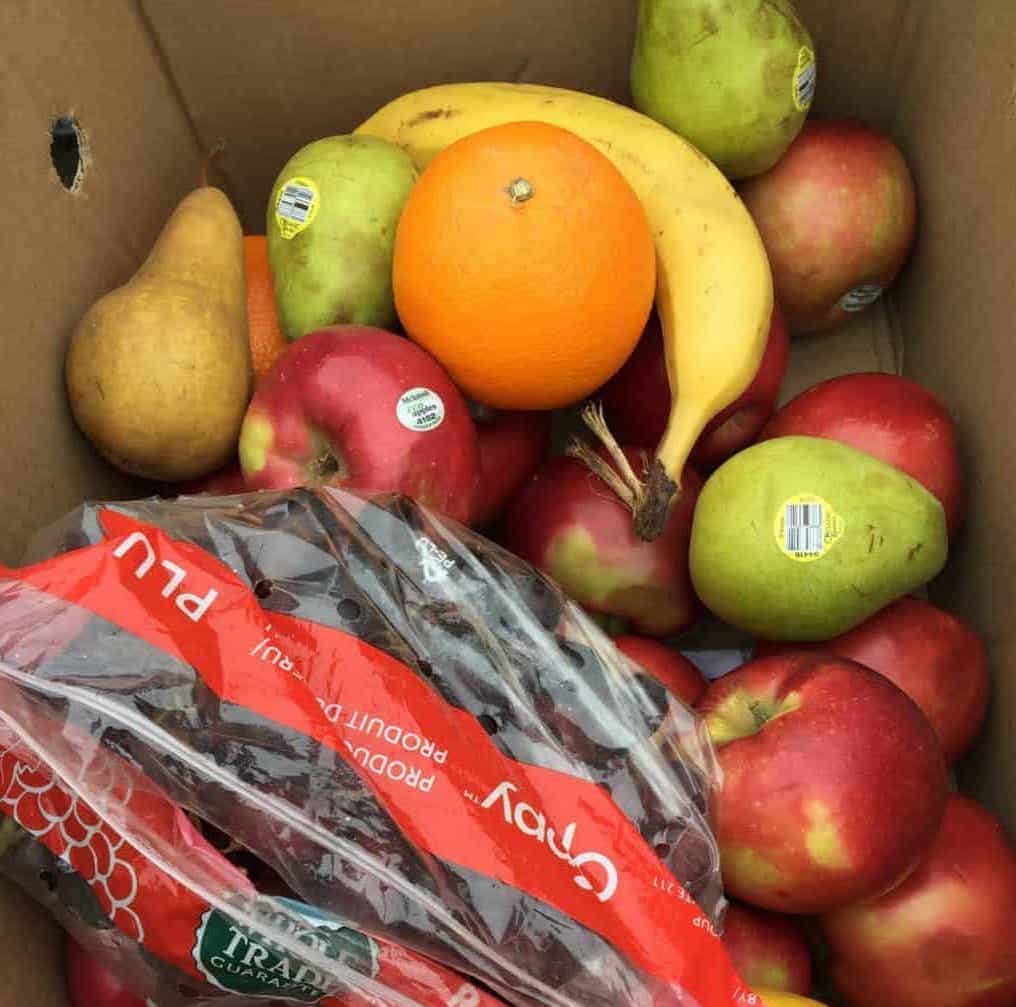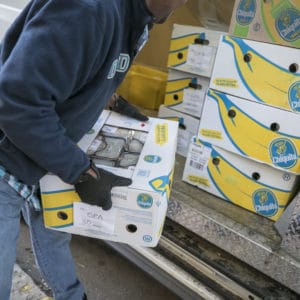donate food
Did you know that roughly one third of the food produced in the world for
human consumption every year — approximately 1.3 billion tons — gets lost or wasted?
We need your help to end food waste. Will you join us?
Who Can Donate?
Farmers
Supermarkets
Universities
Wholesalers
Other Sources
Food For Free can accept food donations from licensed food service establishments. We cannot accept individual donations. Volume, location, and scheduling are all factors in whether or not we can accommodate your food donation request. Our trucks regularly visit the following cities: Arlington, Boston, Cambridge, Chelsea, Everett, Malden, Medford, Needham, Somerville, Watertown, and Wellesley. We may be able to support pick-ups in other cities, particularly for larger volumes (250 pounds or more).
We accept any non-plated food that has been handled in accordance with standard food-safety regulations—this can include grocery items, produce, wrapped sandwiches, salads, or prepared food that has been safely brought down to temperature (40 degrees or below). Please do not donate food that you would not be willing to serve to your clients.
Why Should I Donate?

1 in 3 adults in Massachusetts faces food insecurity. At the same time, businesses in Massachusetts throw away thousands of pounds of healthy, edible food every day.
By donating your excess food, you are helping the environment and ensuring that more people have access to healthy food.
Additionally, donating your excess food rather than sending it to compost or landfill can save you waste-hauling costs and you may be eligible for tax incentives.
The Harvard Food Law and Policy Clinic offers this fact sheet with further information.
What Can I Donate?
We accept any non-plated food that has been handled in accordance with standard food-safety regulations – this can include grocery items, produce, wrapped sandwiches, salads, or prepared food that has been safely brought down to temperature (40 degrees or below). Please do not donate food that you would not be willing to serve your clients.
We accept both frozen prepared food as well as fresh. Fresh food (i.e. sandwiches, salads, etc.) must be donated within 7 days of preparation. Food must be labeled with either preparation date or expiration/use by date.
Previously prepared foods may be frozen for preservation. Freezing process must adhere to ServSafe® guidelines. Prepared food donations may be packaged in a variety of containers and should be made of food grade/food safe materials. Please use recyclable consumables where possible. All prepared food donations must be labeled with the donor organization name, date prepared, contents (i.e. product or recipe name), and ingredients and/or potential allergens.

How Does It Work?

We make food donation easy. Our operations team will work with you to establish a convenient schedule for pick-up of your excess food based on the amounts available, your storage capacity, and our vehicle availability. Excess food should be stored in a safe manner.
When our drivers arrive, they will place that food in boxes provided by Food For Free and transport them in refrigerated trucks to our own cooler and freezer storage or directly to one of our recipient agencies. We track all donations, both in and out, for safe record keeping and by request can provide you with how much food your organization has donated by weight.
For more information on our food donation program, please contact our Operations team at operations@foodforfree.org.
Liability Information: You are protected. There are both federal and state laws protecting your organization from liability as long as you are donating the food in good faith and there is no gross negligence. The Harvard Food Law and Policy Clinic offers this fact sheet with further information.

